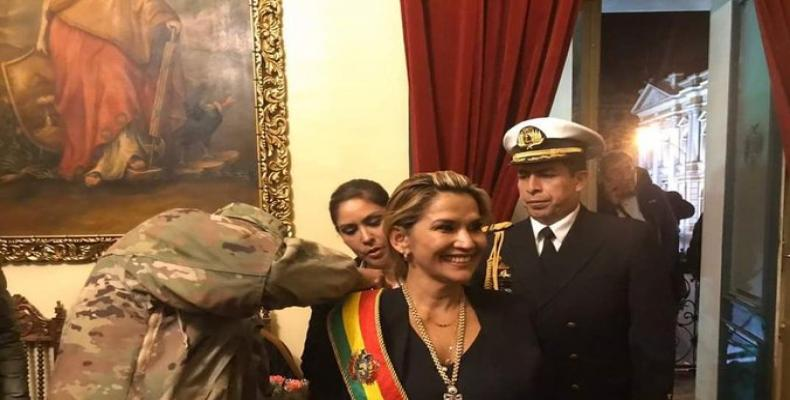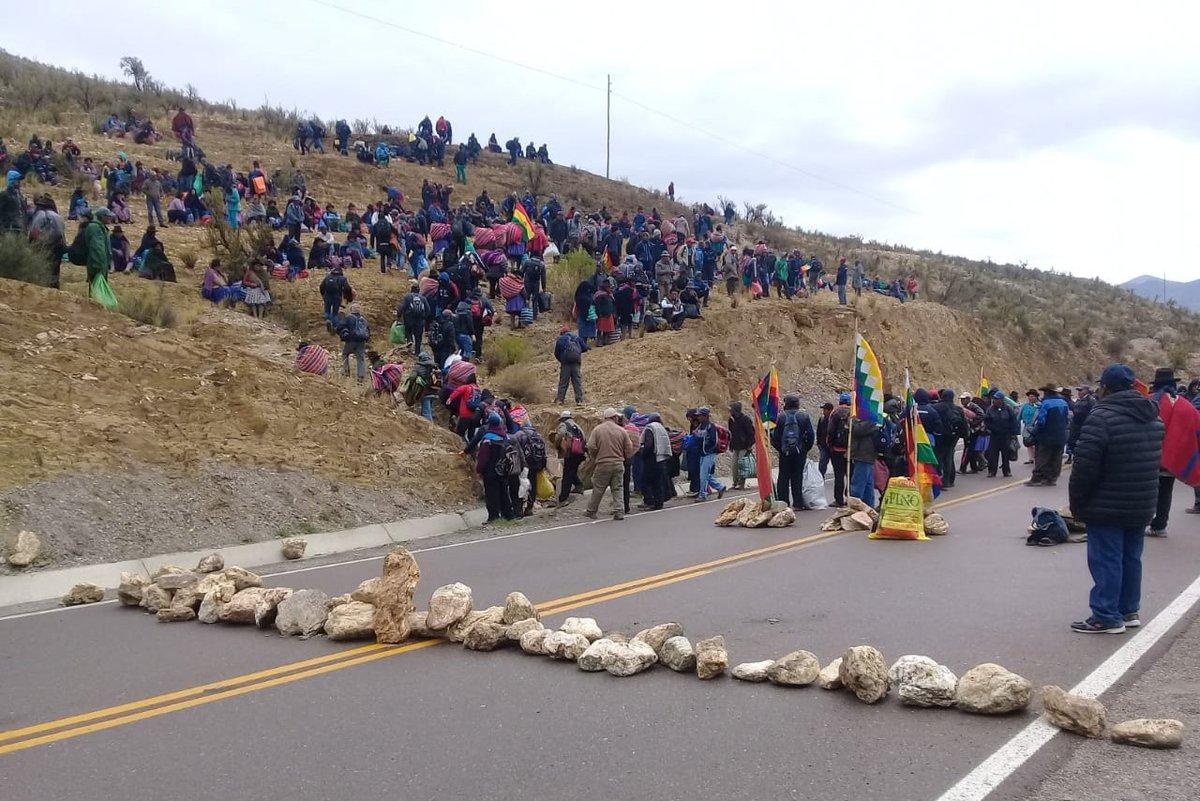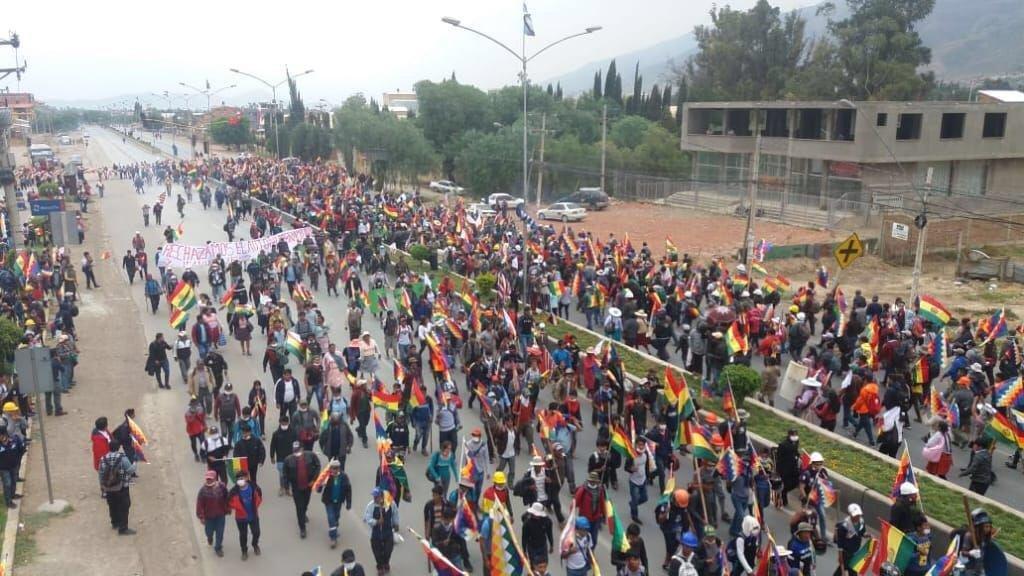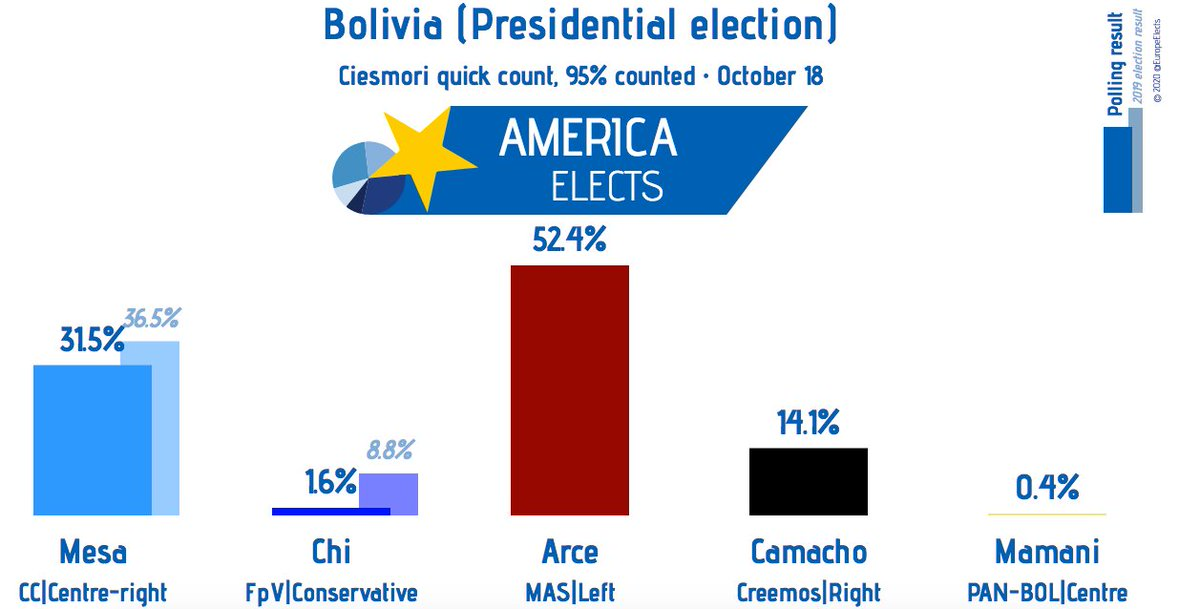That is highly likely a coup.
Just consider the speed of OAS giving support to the opposition.
Let's also consider the face of an opposition. It is common for western-supported South America leaders to be:
- Right-wing
- Christian, or position himself so
- Rich
- Considering US as a very close ally
- Western education
Those points can be applicable to each and every US/OAS-supported South American leader:
- Bolsonaro (Brazil)
- Luis Fernando Camacho (Bolivia) - haven't found more strict information, but even BBC calls it a copy of Bolsonaro.
- Markes (Columbia)
- Guaido (Venezuela) - hardly can be named a leader, but still should be mentioned
So, what scheme do we have:
- criticizing elections. This is just a trigger for the second point - to motivate people crowding on the streets
- causing protests in a capital. Here may appear some unknown snipers - to cause victims, or may not.
- US/OAS/"international community" supports opposition. Legitimizing aim of the protests and protests itself.
- military rejects to support the president. That is the core point. The Venezuelan army is loyal to a leader, so all coup attempts have failed.
- the Coup. And that is.
But it may be more difficult than the West thinks - Morales supporters for now are approaching the capital, in an attempt to stop the coup.
Also, some non-mainstream information can be also considered, to ruin the one-side image.
EDIT
According to (and thanks to - I've continued to gather materials) readers, asking for evidences. La Jornada published a leak from US embassy, revealing the link between US and the coup.
For now it is definetly a coup. It is not surprising, though. It is not the first coup, with the help of US intelligence services in South America, and I doubt if it would be the last.
Notice also, that La Jornada is not a small newspaper. It is a big newspaper, with many readers, Naom Chomsky noticed it as the only independent in the hemisphere.
And some more material about "legitimate coup":
- peaceful Bolivia opposition right-wingers
- Bolivian right-wing groups with the police terrorizing Moralez supporters
As long as situation escalates, THE SECOND EDIT:
Seems that highly likely transforms into "definitely". Military officers placing presidental sash on a "new president":

Note, that there was NO QUORUM in pairlament while "voting" for Jeanine Áñez.
Note also, that Jeanine is openly racist - even its wiki page mentioned her twits racist towards indigenous people of Bolivia (which are about 70% of Bolivian population).
Rephrasing an old wisdom, "If it looks like a coup, walks like a coup, swims like a coup and quacks like a coup, it's a coup".
For now pairlament (WITH quorum) elected new pairlament-speaker, Serhio Choke, which do not recognizes Áñez as president.
Moralez supporters do not stop protests against the coup, some starts blocking roads:


THIRD EDIT
For now, there is still some sort of "civilian" standoff - if police and military shooting at the protesters can be considered as "civilian". Many pro-Moralez protesters have been killed since coup begins - heard about ten victims. Most victims are from protests suppressing in Cochabamba town.
From the last news
- Aniez canceled criminal laws for protest suppressors - for now there is no punishment for police and military officers free killing protesters.
- Fascist terror from the neo-nazi groups supported by Aniez and military like para-military UJC is intencifying.
- Bolivia quits US-opposing structures, such as ALBA, treats Guaido as 'president' of Venezuela.
I'll try to maintain answer actual further - but it becomes very hard, as media reports become very short, only twitter still produce information.
FINAL EDIT
Despite of suppressing Moralez supporters from MAS party, arresting opposition leaders and repressions, junta totally failed on the last elections:

demonstrating its total unpopularity. Now coup is over.



